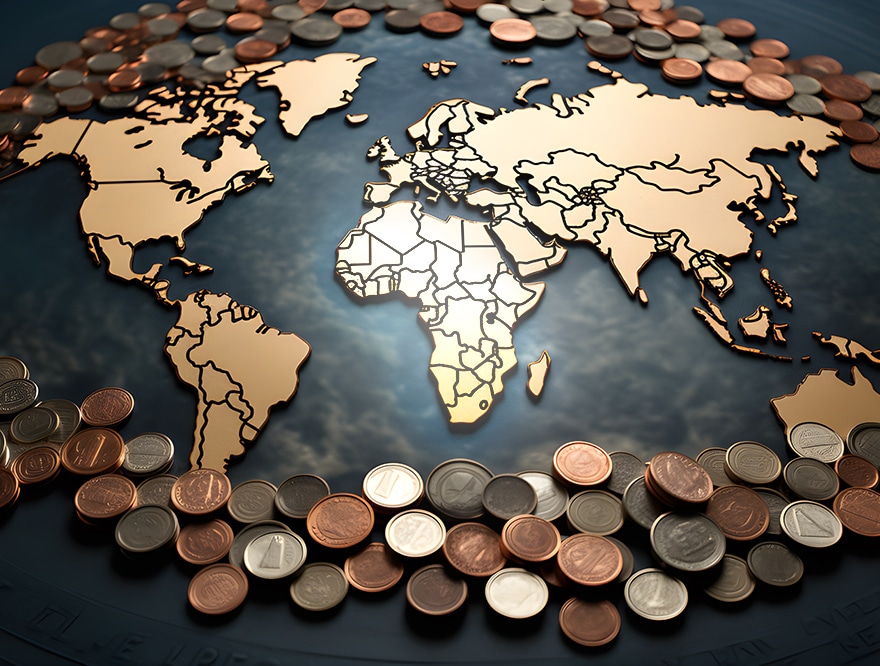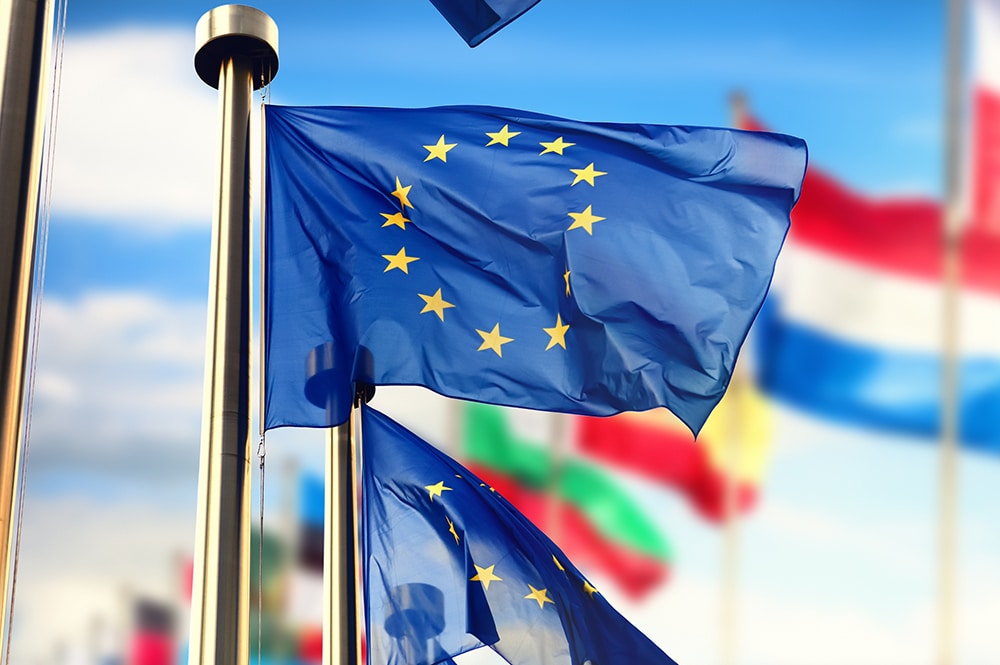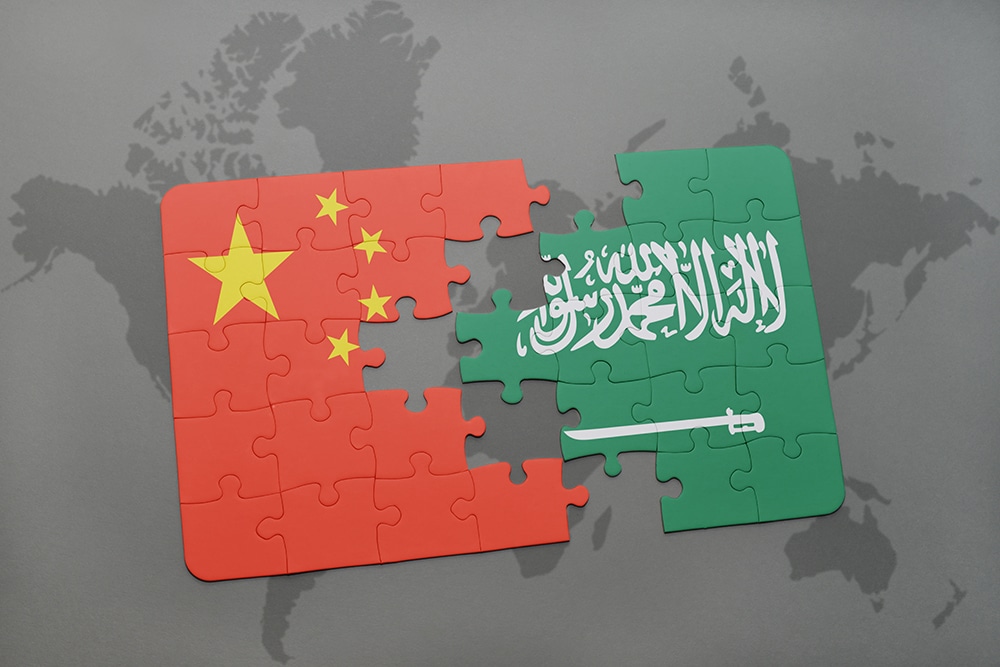Saudi Arabia is striving to strike a balance between its oil and other mineral resources with the goal of trying to keep its energy dominance intact, something it has managed to do so far with regard to oil production. According to reports, the Kingdom wants to increase the GDP contribution of its mining industry to US $75 billion by 2035, a significant jump from the present day US $17 billion.
The Saudi Arabian Mining Company (Ma’aden), a key state-owned enterprise, plays a vital role in implementing the kingdom’s mining strategies, forming partnerships to develop mineral resources and managing major projects. To further boost mining initiatives, Saudi Arabia has introduced a $182 million exploration incentive program and issued 33 more mining licenses.
Moreover, the kingdom is actively engaging with international players in the sector. For example, it recently signed many MoUs with countries like the Democratic Republic of the Congo, Turkey, Egypt, Morocco and Russia in an effort to enhance its mining capabilities and infrastructure, thereby gaining more influence over the global energy transition.
Make informed metal purchases. Subscribe to MetalMiner weekly newsletter with important macroeconomic information to negotiate with power.
Rare Earths Mineral Resources
Riyadh’s emphasis on rare earth mineral resources is mostly focused on securing access to lithium. Not only does lithium play a pivotal role in electric vehicle batteries, but it is also a critical resource in the global transition toward cleaner energy solutions. Turkey and Saudi Arabia recently signed an MoU to partner on transition mineral resources, focusing on knowledge exchange and research related to minerals essential for solar panels and electric vehicles.

An interview on semafor.com quoted Mining Vice Minister Khalid al-Mudaifer as saying that Saudi Arabia aims to position itself as a commercial, refining and research hub to attract companies in sectors dependent on minerals. This includes electric vehicle manufacturers and battery producers. At the same time, the country hopes to strengthen its domestic infrastructure.
Explaining the strategy, the Minister stated that the country was embracing all efforts to ensure that minerals and mining maximize their value to the Kingdom. He went on to say that Riyadh remained focused on securing “the high end” of the electric vehicle manufacturing process, including battery production and the costly, complex metals needed for modern cars.
Download MetalMiner’s free Monthly Metals index report to stay updated on price trends, market intelligence, and outlooks for 10 distinct metal industries.
Also Looking Toward Africa
Some analysts say the transition to a cleaner economy and moving away from fossil fuels will depend heavily on the world’s ability to extract large amounts of minerals needed to manufacture EV batteries, wind turbines, solar panels and other technologies essential for reducing carbon emissions.

Nevertheless, Saudi Arabia seems “all in” on the transition. In fact, it is already leveraging its financial resources and expertise in developing countries. Media outlets report that the country is actively partnering with African nations to meet its growing demand for rare earth minerals. Moreover, the Saudi Fund for Development has signed agreements worth $553 million to help support African countries struggling with debt challenges.
It appears to be a wise investment, as projections show that demand for rare earth materials, which include 17 metals essential for electronics, renewable energy technologies and national defense, will rise to 315,000 tons by 2030.
Geopolitics and The Saudi Plan
According to some reports, the European Union sees cooperation with Saudi Arabia as a potential way to secure its raw material supply. However, the critical conditions for establishing a strategic partnership have yet to materialize.
The U.S. – China rivalry and Russia’s war in Ukraine have intensified the EU’s push for greater autonomy in strategic sectors, including mineral resources. With China dominating many mineral supply chains, the EU is responding through the Critical Raw Materials Act (CRMA), which it introduced in May 2024.
Among other things, the CRMA aims to diversify raw material sources by boosting European extraction, processing and recycling capabilities.

At the same time, the CRMA hopes to foster strategic partnerships with resource-rich nations. The aforementioned report suggests that Saudi Arabia could be a suitable partner in this effort while stating that geopolitical considerations were increasingly shaping the selection of resource partners.
For its part, the United States had embraced a “friendshoring” or “allyshoring” strategy, prioritizing partnerships with politically aligned nations. It also leads the Minerals Security Partnership (MSP), a coalition of mostly Western industrialized nations focused on enhancing resource supply chains.
Although the EU is a member of the MSP, it takes a more cautious diplomatic approach due to its substantial economic ties with various global regions. For now, it seems the EU’s main objectives are to secure its resource supply while maintaining stricter sustainability standards in its supply chains.
Looking for more lucrative metal sourcing tactics? Stay informed on a monthly basis with MetalMiner’s Monthly Outlook. Click here for a free sample.
Saudi Arabia as a Leader in Mineral Resources
Many nations agree that Saudi Arabia is clearly positioning itself on the global stage as a potential partner for mineral resource supply. To that end, the country seeks to expand foreign economic relations and secure profitable raw material cooperation agreements by presenting itself as a geopolitically neutral link in supply chains.

While the Kingdom maintains strong ties with the U.S., it is also deepening its collaboration with China, if cautiously. This dual alignment and its expanding role in the mineral market make Saudi Arabia an attractive diversification partner for the EU. However, there is no institutionalized cooperation between Saudi Arabia and the EU on mineral resources, for now.
By embracing this multifaceted strategy, Saudi Arabia aims to strike a balance — navigating the complexities of transitioning to a sustainable economy while still maintaining its energy dominance. This journey will be fraught with challenges, but if successful, it could significantly reshape the kingdom’s economic landscape and global identity by showcasing its capability to forge a future of leadership that goes beyond oil.
Moving Forward
Saudi Arabia stands at a pivotal moment in its economic and energy evolution. By leveraging its vast financial resources, strategic global partnerships, and a forward-thinking approach to critical minerals, the Kingdom is striving to maintain its leadership in a rapidly transitioning world.
However, challenges abound, from geopolitical conflicts globally to ensuring the balance between development and environmental responsibility. If successful, Saudi Arabia could redefine its role on the global stage, shifting from an oil-dependent powerhouse to a multifaceted leader in the minerals and energy sectors.
MetalMiner can unlock customizable price forecasting for your unique metals, forms, and gauges. View our full metals catalog.




